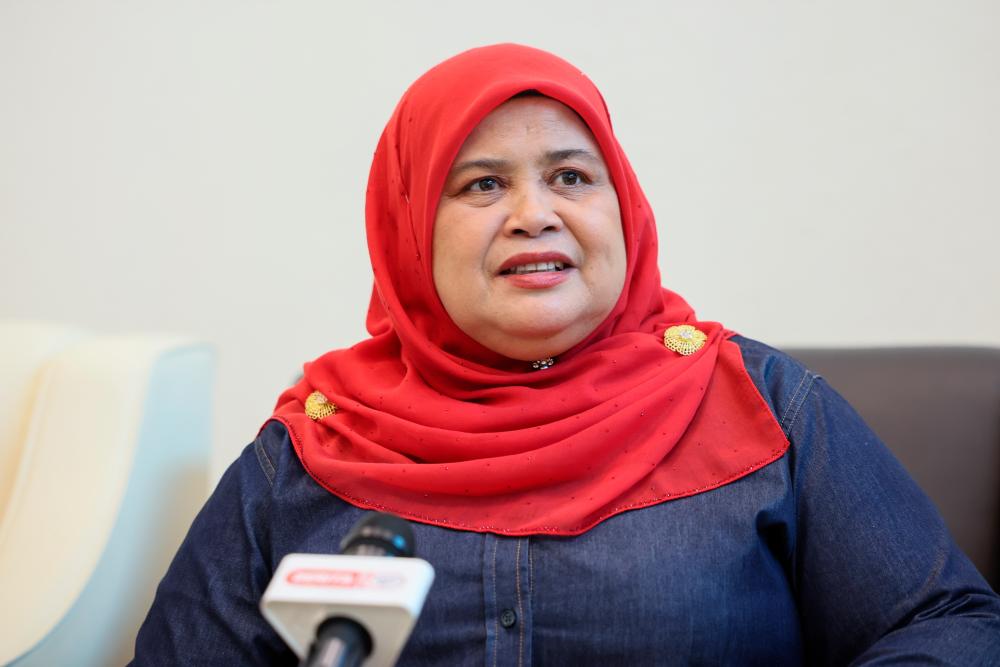SARATOK: The Ministry of Rural and Regional Development (KKDW), through the Rubber Industry Smallholders Development Authority (Risda), plans to build a latex collection depot in Sarawak’s Betong Division.
KKDW Deputy Minister Datuk Rubiah Wang (pix) said the depot would help small rubber farmers in the area increase their income compared to selling scrap rubber at RM3 per kilogramme (kg) currently.
“We will build two units first by using the allocation next year,” she told reporters after officiating the Prosperous Smallholder Council and the Ulu Awik 2023 Agropolitan Project dividend presentation at Rumah Michael, Nanga Risau, here today.
Rubiah said that now there is a factory in Debak, Betong, which receives latex for processing, but due to the lack of a collection depot for the rubber produced by small farmers, it can only be used for scrap rubber collection.
The depot will be equipped with high-tech facilities that can ensure the latex is kept in good condition before being taken to the factory, she said, adding that smallholders can generate higher income when the price of latex is RM6 per kg.
She said that Betong, especially Saratok, was chosen for the construction of the depot because it is the centre of rubber cultivation in Sarawak.
Rubiah also encouraged smallholders to plant timber latex clone trees because not only can they produce latex but the trees can be cut down as timber after 15 years.
At the ceremony, the deputy minister presented dividends amounting to RM161,690 to 153 participants of the Ulu Awik Agropolitan Project.
The project, under the purview of KKDW, was first developed in 2011 on land with Native Customary Rights (NCR) status by Risda.
It was managed by Risda Plantation Sdn Bhd, in coordination with the Sarawak government.
The initiative includes a development area of 349 hectares (ha) with 337.66ha planted with rubber and so far, an area of 288.52ha has started to yield.
The Agropolitan Project is a project under the “Projek Lonjakan Mega Luar Bandar” (PLMLB) which aims to eliminate rural poverty through the development of backward, remote and abandoned areas, while increasing the income and quality of life of the participants. -Bernama









